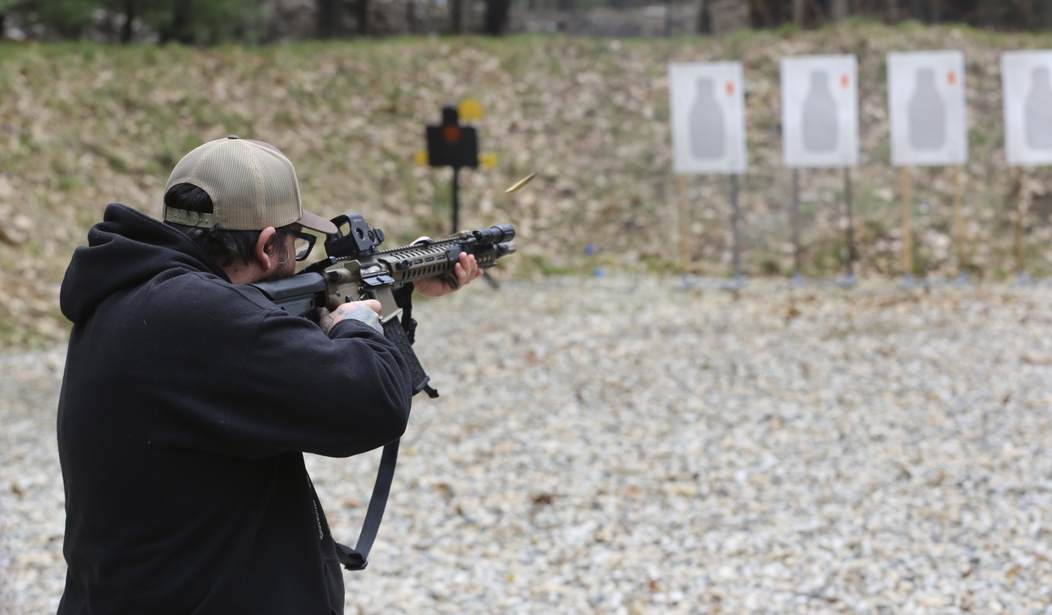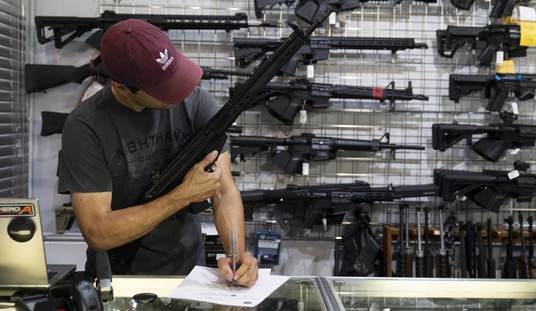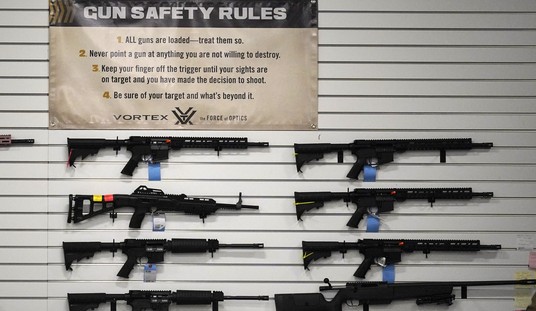With the anniversary of January 6th behind us, we’d think all the insurrection rhetoric would be behind us, at least for a time.
Unfortunately, that’s asking way too much.
You’d think that, at some point, the people screaming about it would recognize that if the political demographic most likely to be armed and pay for training out of their own pockets were interested in overthrowing the government, they’d bring more than signs to the party.
But alas, that isn’t entering most people’s brains.
Yet I can’t help but think at least some understand that on some level.
I say this because of a new bill in the House that I was made aware of Thursday evening.
Washington (January 11, 2024) – Following the anniversary of the January 6th attack on the United States Capitol, Senator Edward J. Markey (D-Mass.) and Congressman Jamie Raskin (MD-08) introduced the Preventing Private Paramilitary Activity Act, legislation that would create a federal prohibition on paramilitary groups through civil and criminal enforcement. The prohibition would hold individuals liable who directly engage in certain types of conduct, including intimidating state and local officials, interfering with government proceedings, pretending to be law enforcement, and violating people’s constitutional rights, while armed and acting as part of a private paramilitary organization.
…
“Patrolling neighborhoods, impeding law enforcement and storming the U.S. Capitol, private paramilitary groups like the Oath Keepers, the Three Percenters and the Proud Boys are using political violence to intimidate our people and threaten democratic government and the rule of law,” said Congressman Raskin. “Our legislation makes the obvious but essential clarification that these domestic extremists’ paramilitary operations are in no way protected by our Constitution. I’m grateful to Senator Markey for his partnership on this critical effort to protect the rule of law, deter insurrection and defend our democracy.”
A copy of the legislation can be found HERE.A one-page overview of the legislation can be found HERE.
The legislation creates different tiers of criminal penalties based on whether violations result in injury or property damage; provides harsher penalties for repeat offenders; and allows for a probationary sentence for first-time offenders. It also creates civil remedies by authorizing the Department of Justice to seek injunctive relief against paramilitary activity, and by creating a private right of action for individuals harmed by paramilitary activity to seek injunctive relief and/or damages. The legislation contains clear exceptions for activities such as historic reenactments, state-sanctioned trainings, and veterans’ parades.
Among specific points brought up regarding what this bill will restrict was, “training to engage in such behavior.”
But let’s be honest, what lawmakers claim a bill will do and what the text says can be quite different. I was already uncomfortable with what I was reading, since “patrolling” has a specific meaning in a lot of contexts, but I can also see someone applying it to a pro-gun march with some folks open carrying.
Was that what this bill was trying to address?
So, I took a look and, frankly, I’m not exactly thrilled with what I see.
For one thing, the word “patrolling” is mentioned several times in the press release announcing the bill and is expressly prohibited in the text of the bill, but is never actually defined by the bill. That means the definition of “patrol” is likely to be subjective.
But there’s worse.
For example, from the bill itself:
‘‘§ 2742. Unauthorized private paramilitary activity
‘‘(a) OFFENSE.—It shall be unlawful to knowingly, in a circumstance described in subsection (b), while acting as part of or on behalf of a private paramilitary organization and armed with a firearm, explosive or incendiary de8 vice, or other dangerous weapon—
‘‘(1) publically patrol, drill, or engage in techniques capable of causing bodily injury or death;
‘‘(2) interfere with, interrupt, or attempt to interfere with or interrupt government operations or a government proceeding;
‘‘(3) interfere with or intimidate another person in that person’s exercise of any right under the Constitution of the United States;
‘‘(4) assume the functions of a law enforcement officer, peace officer, or public official, whether or not acting under color of law, and thereby assert authority or purport to assert authority over another person without the consent of that person; or
‘‘(5) train to engage in any activity described in paragraphs (1) through (4).
Now, based on this alone, all sorts of things will fall under this regulation and, theoretically, be prohibited. Arguably, even your kid’s tae kwon do class would be illegal, since that would be training in “techniques capable of causing bodily injury” at a minimum.
Luckily, it’s not quite that stupid. It does require certain other conditions to be met as well. The problem? Those conditions are kind of a low threshold to clear.
Note that the above section clearly states that a circumstance from section (b) must be met, so that seems to say that if any of those apply, we’ve got a problem. I’m not a lawyer, so I may be misreading this, but it seems they’re pretty easy to meet, including crossing state lines, using “instrumentalities of interstate or foreign commerce,” involve a gun or explosive device, uses a so-called-high capacity magazine, or takes place within the United States.
And since the next to last listed uses the word “or” before going on, it makes it pretty clear that only one needs to be met.
The problem here is that just traveling on a road at all could be construed to be using an instrumentality of interstate commerce.
While it’s unlikely to be enforced that way, it sure looks like the fact that you’ll drive to a Brazilian Jiu Jitsu class could meet this criteria.
However, a far more likely issue arises when we look beyond that.
For example, if you’ve never been in the path of a natural disaster, you probably don’t realize what it’s like to find your local law enforcement overwhelmed. People can and do decide to take advantage of that and a lot of people join together to protect their neighborhoods. One could say they patrol the neighborhood.
It would seem this bill would prohibit that.
More than that, though, it seems that a lot of firearm training classes could be negatively impacted. After all, are we not learning “techniques capable of causing bodily injury or death” when we attend? I mean, isn’t that the point?
Plus, you’re going to take a road at some point or another, meeting at least one of the circumstances laid out in the bill, as well as using a firearm–again, that’s kind of the point–and probably a magazine that holds more than 10 rounds, which is how the bill defines “high capacity magazine.” Literally any firearm training class seems like it would violate the law.
Any.
Now, again, I’m not a lawyer. It’s possible that there’s some quirk in how this is written that my layman eyes are missing that prevents it from meaning what it sure looks like it means, but I doubt it.
If there’s any good news to be found in this travesty of a bill, it’s that this is in the House, which the GOP controls. What’s on the page right now will likely never come to a vote. The absolute best-case scenario for this bill would be for the committee to gut this thing and rebuild it to not be a complete and total abomination.
Even then, I don’t see this going anywhere. It’s far more likely to get assigned to a committee where it can die a lingering death.
If it doesn’t, the gun training industry is going to need to lawyer up.








Join the conversation as a VIP Member